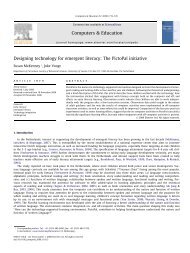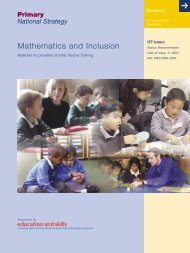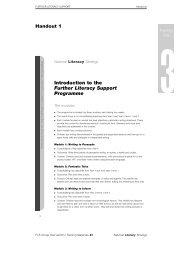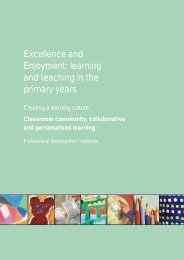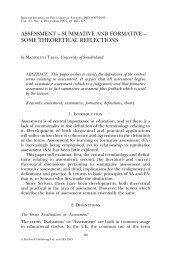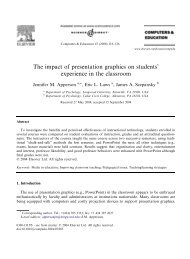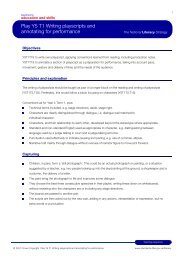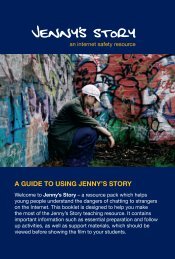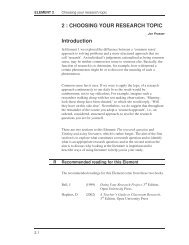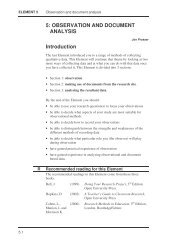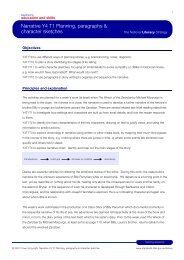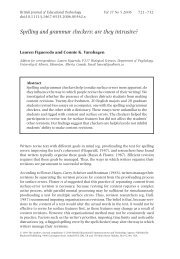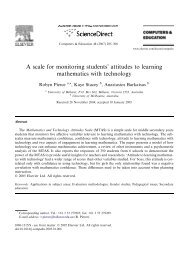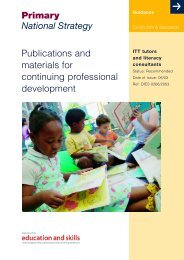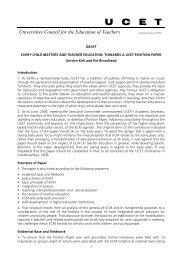Module 2: Written feedback - PGCE
Module 2: Written feedback - PGCE
Module 2: Written feedback - PGCE
Create successful ePaper yourself
Turn your PDF publications into a flip-book with our unique Google optimized e-Paper software.
Slide 4.2.6<br />
Make the following points.<br />
• The teacher’s comments are directly linked to the lesson objectives and the<br />
learning outcomes. Fiona is working broadly at level 5 and the teacher’s<br />
comments are encouraging her to develop the ideas associated with level 6.<br />
• The teacher provides positive <strong>feedback</strong> about how Fiona has exemplified<br />
her learning. (Give example from the handout 4.2.3.)<br />
• Through the use of questions, the teacher is encouraging Fiona to develop a<br />
greater depth of understanding. The teacher is therefore challenging Fiona<br />
to think rather than provide the correct answer.<br />
• The comments are written in an encouraging manner with an opportunity for<br />
discussion with the teacher. There is an opportunity in the logbooks for<br />
pupils to raise questions. This can be used as a starting point for discussion<br />
about developing ways of learning.<br />
• Work not responded to in detailed written <strong>feedback</strong> is responded to in a<br />
variety of other ways, e.g. through peer and self assessment, lighter touch<br />
marking and oral <strong>feedback</strong> to groups or individuals.<br />
• From Fiona’s marked work it is easy to check whether she has met the<br />
objectives. Planning the expected outcomes for pupils of differing abilities<br />
helps the teacher to challenge them during the lesson. It also saves time in<br />
setting the next steps in the pupils’ learning. In this case the teacher prefers<br />
to use questions to which Fiona is expected to respond.<br />
• Giving written <strong>feedback</strong> in this way is time-consuming and demanding for<br />
the teacher. In practice, selective but detailed marking of books makes<br />
effective use of teacher’s time.<br />
• Pupils need to be prepared to respond to the teacher’s marking. This is<br />
often easiest through comments phrased as questions.<br />
• The frequency of such detailed <strong>feedback</strong> needs to be explained in the<br />
whole-school policy which should clarify the different types of <strong>feedback</strong> and<br />
their expected use.<br />
7 Unit 4, <strong>Module</strong> 2: <strong>Written</strong> <strong>feedback</strong> © Crown copyright 2004



